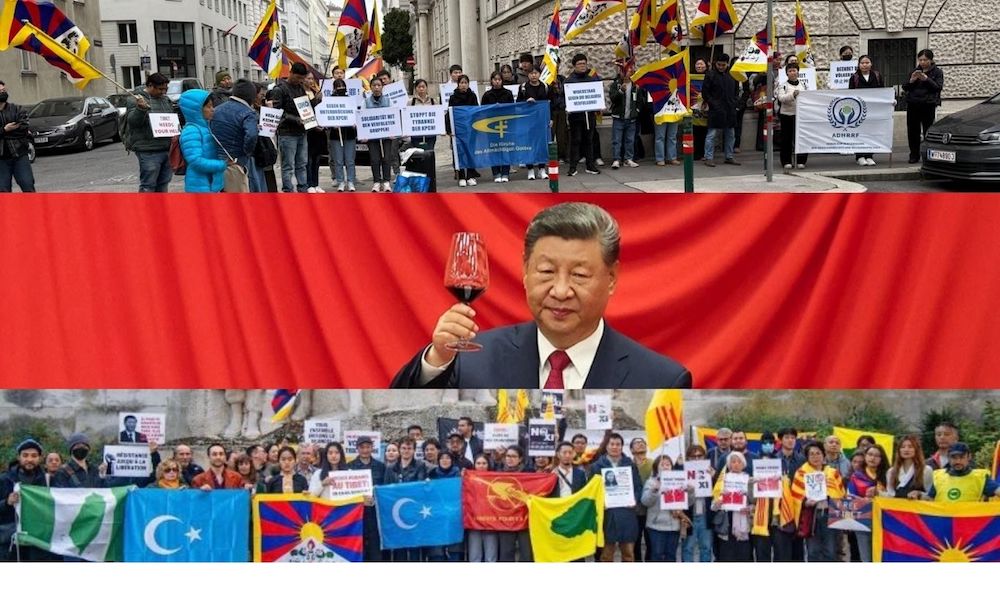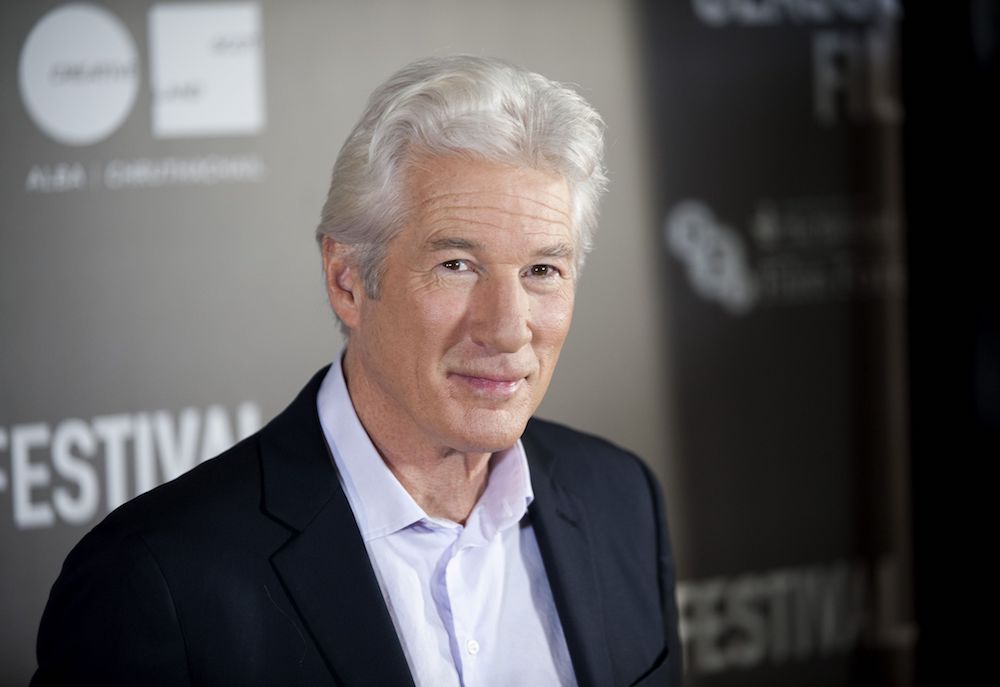Tsering Dhundup
DHARAMSHALA, Oct 4: As Beijing celebrated the 76th anniversary of the founding of the People’s Republic of China with flag-raising ceremonies at Tiananmen Square and the symbolic release of 10,000 doves, a wave of global protests cast a shadow over the official narrative of unity and pride.
While Chinese state media hailed “national rejuvenation”, exiled activists from countries occupied by China, human rights groups, and diaspora communities around the world reframed October 1 as a day of mourning and resistance.
In London, Washington, Tokyo, Sydney, Berlin, France, Toronto and more than a dozen other cities, hundreds rallied outside Chinese embassies and consulates. Organised by coalitions including the Students for a Free Tibet, Tibetan Youth Congress, World Uyghur Congress, Campaign for Uyghurs, and Hong Kong democracy groups. Protesters rejected Beijing’s narrative with chants of “Communist Party step down!” and “Hong Kong is not China.” Banners declaring October 1 as “Resist the CCP Day” or “China National Falls Day” rebranded the holiday as a commemoration of tragedy rather than triumph.
While dissent inside China remained muted under heavy surveillance and censorship, according to reports, isolated acts of defiance surfaced online. Digital campaigns surged with hashtags condemning authoritarianism, censorship, and Beijing’s territorial claims, ensuring that voices of resistance reached global audiences. Activists reframed Xi’s rhetoric of “shared future for humanity” as propaganda masking ongoing repression.
At the official reception in Beijing, President Xi Jinping painted a vision of strength and progress. “Over the past 76 years, under the leadership of our Party, the Chinese people have made remarkable achievements that will be etched in history as landmarks,” he said, vowing to safeguard sovereignty against “Taiwan independence”, deepen “One Country, Two Systems” in Hong Kong and Macao, and lead China toward “socialist modernisation”. Yet critics abroad saw this as hollow rhetoric, pointing to the repression of religion in Tibet, mass detentions in Xinjiang, the erosion of freedoms in Hong Kong, and the suffocation of independent voices within China.
The stark contrast between state propaganda and global dissent defined the anniversary. Xi’s toast to “the prosperity of China and the happiness of all ethnic groups” rang hollow against images of Tibetans, Uyghurs, Hongkongers, Taiwanese, and their allies demanding freedom in the streets of foreign capitals.









